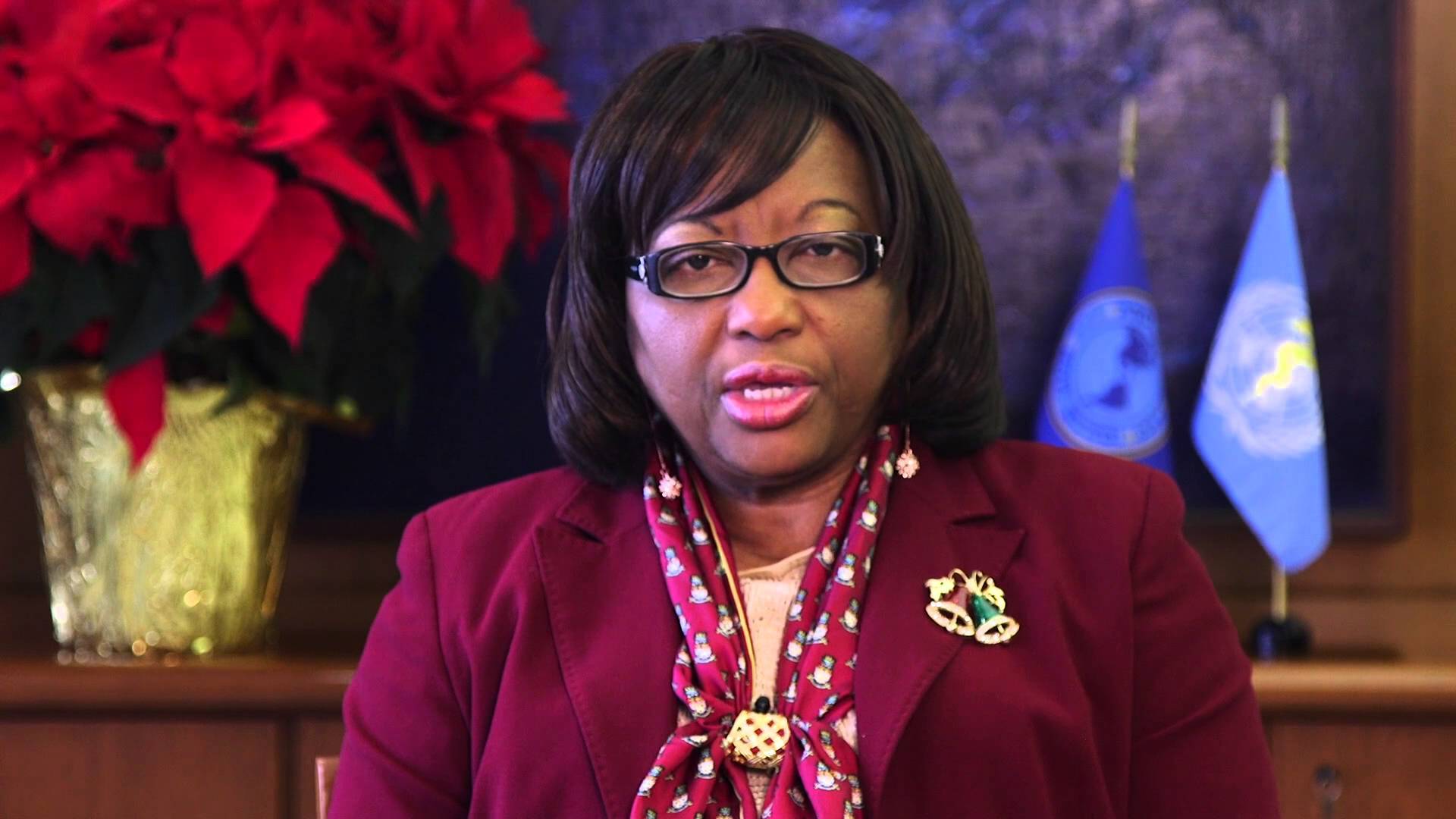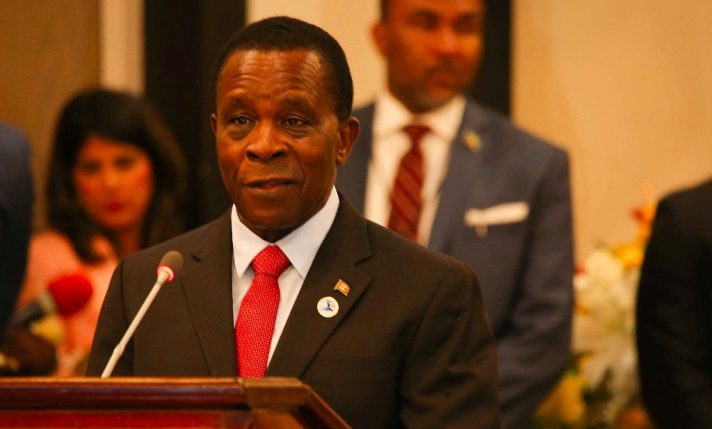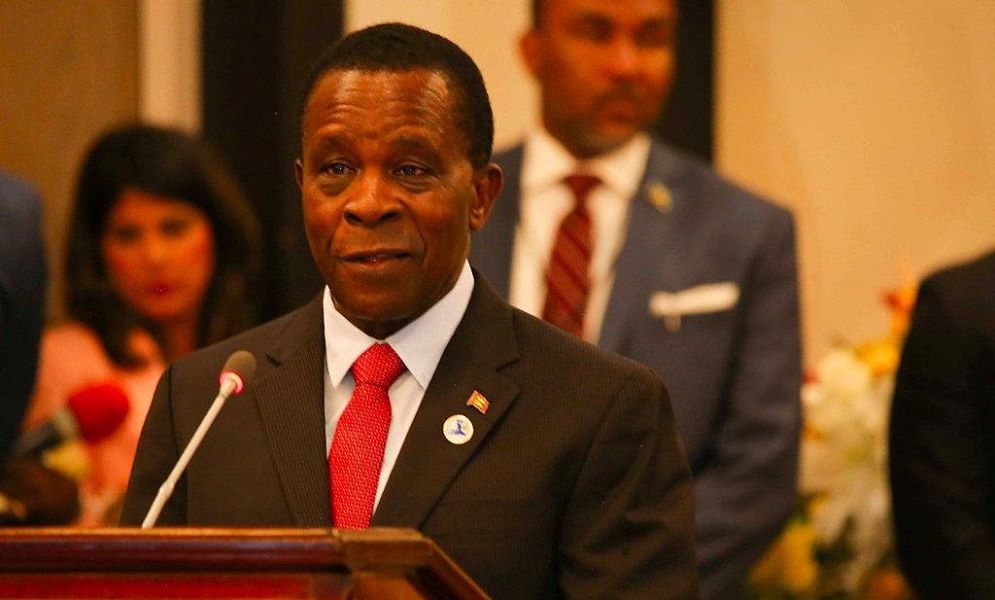SALUTATIONS
I am very pleased for the invitation to address this gathering.
I am very pleased that the forum is addressing the issue of Science and Technology (S&T), and may I add “Innovation”, and their contribution to Caribbean Development. The Conference is covering a number of very important topic areas, such as Regional Priorities, the issues of Partnership and Networking among regional institutions, Innovation and Inventions, Capacity Development, Policy Framework, and Funding, among others.
All these are very important. All of these we have discussed in time past; and then we retreat into silence. After a while we return to these topics with fresh, renewed vigour, only to lull into the next period of silence and inertia. And then we repeat the cycle.
Ladies and Gentlemen, if I had been asked to identify what I consider to be the single most significant obstacle stymieing CARICOM development in Science and Technology, and for which we are paying dearly today, I would have to conclude that our greatest downfall has been our inability as a region to agree on, and to implement a policy strategy and action plan for Science technology and Innovation in the Region. In parallel with this is the apparent inability of our S&T institutions to collaborate, to coordinate and optimize our scarce resources in this area.
This has led to more than two decades of inertia, wasted resources, duplication of effort that have left us in the Caribbean scrambling to try to get a focus today in May 2006, when global developments are moving around us at warp speed.
I do not want to lay blame per se, but CARICOM, which is to provide leadership in this regard, does have to accept final responsibility for this sluggishness in the area of policy approval and implementation at the regional level. The absence of an approved regional policy on Science Technology and Innovation has in some cases slowed down the development of national policies, and limited the scientific and technological progress that we have been able to achieve to date.
I raise this issue now because in fact I am concerned that we may be repeating history at this Forum. We meet, we talk, and then we go silent until next Conference.
Given the array of institutions participating in this Conference, let us at least resolve to ensure that this does not happen again.
I really would have liked to see the Draft Regional Policy document on ST&I on the Agenda of this Conference.
In 1988, CARICOM adopted a regional S&T policy with the intention of its being integrated into national development planning. The Region as a whole (not necessarily specific Member States) has not demonstrated much progress in the implementation of that decision.
This decision was simply not taken to the next level.
In July 2000, the Twenty First Meeting of the Conference of Heads of Government of the Caribbean Community (CARICOM), was held in Canouan, St. Vincent and the Grenadines.
On behalf of Grenada, I made a presentation to the Heads Of government for their consideration on the issues of regional institutional coordination and networking, on policy development, and on priority sectors.
The Heads of Government, in their conclusions, reiterated the importance of Science and Technology in the context of the CARICOM Single Market and Economy, and for ensuring competitiveness of the region in a global economy.
The Heads also agreed and emphasized the importance of networking among the Science and Technology institutions within the Community to strengthen the administrative machinery in the region, and to ensure optimisation of resources and effectiveness in implementation. The Caribbean Council for Science and Technology (CCST ) the University of the West Indies (UWI) and the CARICOM Secretariat were requested to promote the networking among S&T institutions in the Region, and to undertake the necessary co-ordinating action to facilitate the mobilisation of resources for the implementation of regional project initiatives in respect of identified priority areas.
Mt Chairman, allow me to refer to the Decision of the Heads of Government at that meeting in 2000
THE CONFERENCE:
(i) received the presentation of the Government of Grenada related to Science & Technology and the submission presented in the document entitled Framework for Science and Technology Extension Services.
(ii) considered and agreed to
(i) Designate the Caribbean Council for Science and Technology as the Agency for coordinating and implementing of CARICOM's policies and programs in Science and Technology;
(ii) Provide the CCST with appropriate levels of funding and quality staffing and other support to enable it to carry out the mandates and directives of CARICOM;
(iii) Request CCST to give priority to regional issues with a science and technology option and content;
(iv) Request CCST to include in its future planning the following:
· Review and complete the definition of the Regional S&T Policy
· Draw up a S&T Programme based on decisions taken by CARICOM organs, the priority needs of the Region, and relevant directives.
· Initiate activities to enhance cooperation, coordination and rationalization of S&T in the Region.
· Mount regional initiatives focused on identifying, developing and implementing and following-up the S&T options in specific areas, such as:
o National Development Plans and Projects
o Food Security and development
o Marine resource Management
o Tourism
o Waste Management Water Resource Management
o Technology in Education
o Development of Small, Medium and Micro Enterprise.
(v) Mandate the appropriate Organs of the Community to take appropriate steps to give effect to these decisions of the Conference
(vi) Mandate the Secretariat in conjunction with the CCST to Network the Science and Technology institutions in the Region.
The Conference of the Heads of Government was therefore clear on the need for coordination and implementation, for policy development and the initial priority sectors.
This meeting today underlies the fact that the coordination mechanisms for these are still to be established. This decision of the Heads was clearly a move in the right direction in terms of optimizing regional resources, particularly in light of the fact that, up to that point in time, there had not been an S&T desk at CARICOM for several years.
In April 2004, at its 19th Plenary Session held in Dominica, the Caribbean Council for Science and Technology (CCST) agreed, as a top priority, that it should takes steps to prepare a draft regional Science, Technology and Innovation (STI) Policy Framework. This would provide the Region with guidance, and the impetus to focus on, and commit to, policy-making to govern the activities for STI which were deemed critical to the achievement of our key developmental goals.
The draft Policy was completed in September 2004, with input from CARICOM. It was then submitted to me, in my capacity as Lead Prime Minister of CARICOM with responsibility for Science and Technology, for consideration and subsequent circulation to the CCST focal points in each member country for national consultations.
As the S&T Ministers present at this round table would be aware, consultations on this Draft were held in most member countries. The resulting draft document was submitted to the CARICOM Secretariat in the middle of last year with the request that the Secretariat arrange, as a matter of some urgency, a Meeting of Ministers responsible for Science and Technology, to enable consideration, and the ratification, of this document at the earliest opportunity. Such a meeting was intended also to be an opportunity for all Ministers to discuss the outcome of the OAS’ Hemispheric Meeting of S&T Ministers, which was held in Peru in November in 2004, and to further align our regional thinking and plans of action, and to take advantage and benefit maximally from the wider hemispheric cooperation in Science, Technology, Innovation and Engineering.
This Meeting of CARICOM Ministers responsible for Science and Technology has not yet taken place. So there has been no progress in terms of adoption of the Draft S&T Policy.
This brings me to the earlier point about this meeting, which is being hosted jointly with CARICOM, UWI and others.
In the documentation which I have received for this, there Conference, there is no hint of reference to the Draft policy framework document. There is no provision in the Agenda to review it. This is even more of a tragedy, given how difficult it is logistically to get Ministers to meet.
And yet, here we all are today, but the Draft Policy Document is not.
Mr. Chairman, Ladies and Gentlemen, I felt compelled to bring this up here today, to get us to consider why this great disconnect seems to repeatedly occur in our regional planning where commitment to establishing policies for S&T is concerned. It certainly does not inspire confidence for the outcome of this Conference, another regional think-tank meeting.
Is it that we as technical advisors and policy-makers simply want these issues to remain as largely academic ones? Do we want to be continuously meeting and debating how to harness S&T for our development?
At some point the action has got to be taken. But When?
Mr. Chairman, I would also like to use this opportunity to raise another point with regard to fostering greater coordination between the activities of CARICOM and the CCST.
Earlier today, an award was presented [to……. ] in recognition of [his/her] contribution as an outstanding scientist in the region. This signals that the scientific community accepts the need to pay homage to its members for their work.
I applaud this effort.
I would however, like to propose that this kind of activity be taken to a much deeper level, in order to significantly raise the profile of scientific and technological activities in the region and cement its contribution to regional and national development.
As some of you here may be aware, the CCST last year issued a publication, which was entitled “Caribbean Icons in Science, Technology and Innovation,” which showcased, through short profiles, the lives and work of 35 of the region’s top scientists. Over 4000 copies have been printed, most of which have been distributed to primary schools in all CCST member countries.
The importance or impact of this cannot be underestimated. We now have a first-of-its-kind teaching and learning resource on regional scientists, for our current generation of students. It is also a vehicle for presenting new or alternative role models and heroes for our children to emulate. This can go a long way in supporting regional capacity-building in STI, by inspiring more and more students to pursue higher studies and careers in science, technology and engineering.
I am therefore going to make the recommendation today that CARICOM leverage the work done under this CCST initiative to further enhance public awareness of, and appreciation for, the critical role of Science, Technology and Innovation in development. This can be done by CARICOM formally recognizing, these 35 Caribbean Icons in STI who were profiled in the CCST publication. Perhaps it could be done through the presentation of awards. Perhaps it could be done in the context of the Order of the Caribbean Community Awards Ceremony, or at a separate especially dedicated occasion.
Mr. Chairman, where do we go from here?
Clearly, we have to eradicate the apparent inertia that seems to have us marking-time.
Clearly, we need to agree on a Policy Framework.
Clearly, we need our institutions to coordinate and network better.
Clearly, we need to optimize the use of our human, institutional and financial resources.
As a Region we must consider the Draft policy document waiting in the wings.
We must make a decision on the Policy for the CARICOM Region.
Even then, several challenges still face us
We must integrate Science Technology and Innovation into the CSME. The CSME is also about knowledge. CSME is also about Science and Technology and their application in search of solutions to our peculiar development problems
As the Draft Policy document says [and I quote]
“Innovation is a key driver of long-term economic growth, and competitiveness in world markets.”
“CARICOM at this time faces the challenge of strengthening scientific, technological and innovating systems to entrench its development, and the move towards a knowledge-based economy.”
Science and technology can no longer be seen as a stand-alone discipline for the academically gifted. Scientific and technological knowledge as well as the innovation have to be translated and become hands-on tools into “know-how” for our farmers and fishermen, for our food processors and our service providers, for our machine workers and construction tradesmen, for our housewives and our teachers, to name a few.
It must inform how we plan, how we manage, how we implement our projects, how we use our land and our marine resources. It must inform how we take care of and exploit our environment, and how we exploit our solid and liquid waste.
We have to normalize and demystify research. We have to make science, technology and innovation a popular norm of our Caribbean societies. We have to create that culture of science and technology and innovation. We have to demystify science, demystify technology, and demystify inventions and innovation. We have to find ways to encourage and reward our innovators, whether these innovators are on the factory floor or on the farm, or in academia.
Again I quote from the Draft ST&I Policy Document
“In the new knowledge-base international environment, it is knowledge and creativity that will give nations their competitive edge. The cornerstones of innovation are originality and creativity…….
Immersing young minds into the psychology, culture and pursuit of inventiveness requires a nurturing climate. Integral parts of ST&I include observation, deductive reasoning, research, experimentation, and problem solving. These skills can be incorporated as pedagogical tools in school curricula delivery, thereby conditioning young minds to develop innovative patterns of thought.”
Mr Chairman, Ladies and Gentlemen, as I end let me say a few words about CKLN, the Caribbean Knowledge and Learning Network.
The leadership of the Region has a responsibility to ensure that the Caribbean is not digitally excluded from the rest of the world.
In June 2003 the European Commission approved the ALICE project which stimulated the creation a Regional network infrastructure called red CLARA to connect 18 Latin American countries amongst themselves and with Europe. CLARA is a Latin American network linking institutions of learning in Latin America, North America and Europe for exchange and stimulating of online learning and knowledge. Sadly the Caribbean Region was left out of this education and research network creating a digital hole in the hemisphere. This digital exclusion, if not addressed, will marginalise the Caribbean rendering us peripheral to knowledge sharing and collaboration with the rest of the world.
Immediate action is required to ensure that this digital divide is closed.
At the IV European Union – Latin America and the Caribbean Ministerial Forum on the Information Society held in Lisbon on April 28-29, 2006, the issue of “Social Cohesion through Digital Inclusion was addressed”. It was recognised that the Caribbean has been digitally excluded from the connectivity agenda for Social Cohesion amongst Europe and Latin America by being excluded from the redCLARA network
The Forum’s declaration calls for the redCLARA network to be extended to the Caribbean in the future. WE cannot wait for an initiative as important as this to be based on the agenda of others. We have to be proactive and take the initiative to do the necessary assessments to determine the most practical way forward in developing a Caribbean Network linking all Member States to secure Social Cohesion through Digital Inclusion for our people.
The Caribbean Knowledge and Learning Network< CKLN, has been established as a Regional mechanism in St. Georges Grenada to spearhead the connectivity agenda for knowledge sharing and collaboration between all our Tertiary Institutions in the Region.
We need to strengthen this institution to provide the leadership and capacity to work with entities such as CLARA to bring to the Region a Network Infrastructure no less in scale and scope than that which is now available in Latin America through the ALICE programme.
I will be discussing this very important issue with my colleagues to ensure the necessary steps are taken to move us in this direction.
.In he meantime I would like to invite the academics, the investors and others to take initiatives that would give support to CKLN. This Regional Network is our best chance to bridge the knowledge gap within the region and between the region and the rest of the world.
Time is not on our side.
Thank you.





